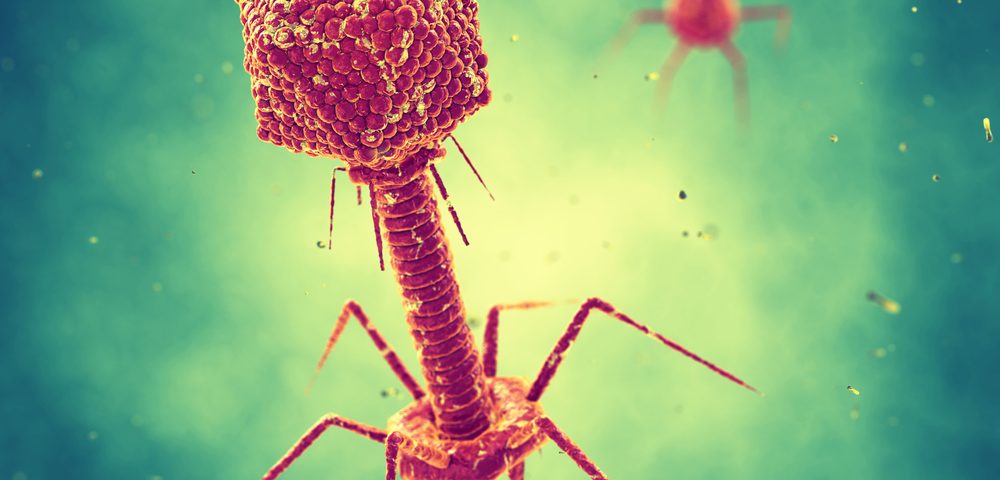Populations of bacteria-infecting viruses, called bacteriophages, were found to be altered in the intestines of a mouse model of colitis, indicating that these viruses may be involved in inflammatory bowel disease (IBD), a study reports.
Researchers suggest that results from this study could be used to develop a therapy for colitis, a type of IBD. Additionally, bacteriophages, also known simply as phages, could be used as markers to predict whether someone is at risk of developing colitis.
“We could promote the growth of good bacteria — a kind of phage therapy,” Breck Duerkop, PhD, assistant professor of immunology and microbiology at the University of Colorado School of Medicine and first author of the study, said in a press release. “We could perhaps use phages as markers to identify someone predisposed to developing these diseases. While there is clearly more research to do, the potential is very exciting.”
The study, “Murine colitis reveals a disease-associated bacteriophage community,” was published in Nature Microbiology.
IBD patients are known to have an imbalance in their gut microbiome, which is comprised of bacteria and other microorganisms. The dysregulation of intestinal microbial communities is associated with increased inflammation.
Most studies that have examined the effect of gut microbiota on IBD have mainly investigated the involvement of bacteria. However, other microorganisms — particularly viruses — are also abundant in the intestine.
One particular type of virus prevalent in the intestine are bacteriophages, which infect bacteria. Taking into account the large bacterial population in the human gut, it is not surprising that phages play a role in maintaining bacterial balance — or imbalance in the case of IBD patients.
“Phage numbers are elevated at the intestinal mucosal surface and increase in abundance during inflammatory bowel disease (IBD), suggesting that phages play an unidentified role in IBD,” Duerkop said.
Researchers hypothesize that inflammation changes the abundance of phages during colitis. Since inflammation is a stress to the system, it can actually produce “ecological disturbances in the intestinal environment, driving alterations within the viral community,” according to the study.
Using a mouse model of colitis, researchers first isolated DNA from these viruses. They then used a method called quantitative metagenomics to study the population of intestinal phages.
They discovered that during colitis, the phage population of the intestine becomes altered and transitions from a normal, ordered state to a random, imbalanced state.
Researchers were also able to identify which phages were specific to patients with intestinal disease and which phage populations were altered in colitis.
Furthermore, the population of phages found in healthy and diseased mice were similar to those found in healthy humans and humans with IBD.
“What we see in mice is consistent with what we see in humans with IBD,” Duerkop said.
“Our findings indicate that intestinal phage communities are altered during inflammatory disease, establishing a platform for investigating phage involvement in IBD,” the authors conclude in the study.

